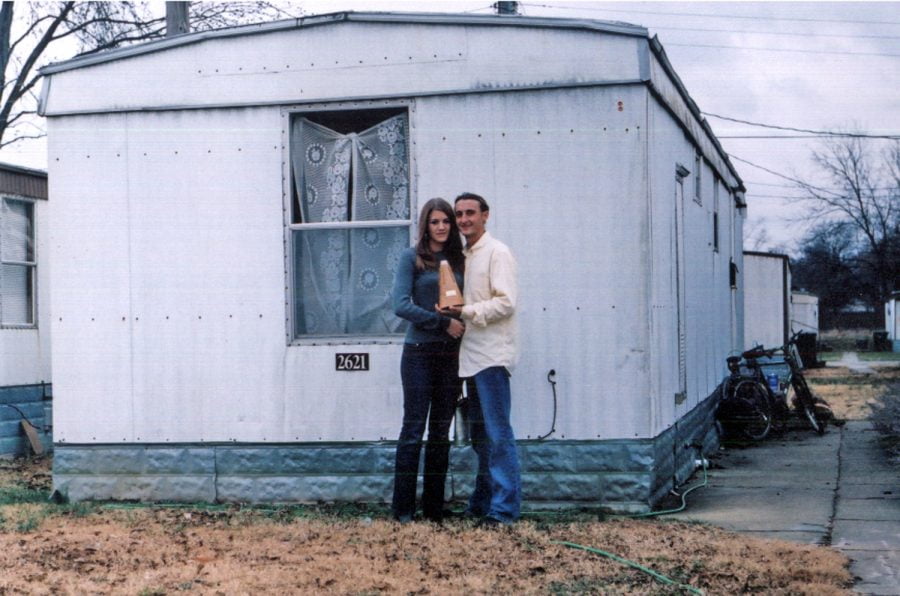Our story
In Ion’s Words
In 1999, I came to the US in search for a better life. Prior to coming to the US, I played (all positions, including Principal horn) for nine years with the Romanian National Opera. While this was a prestigious position, the Romanian economic realities of the 90′s were harsh and unbelievably austere. Most of the time, my monthly salary was below $100 a month, which was less then the average apartment’s rent at the time.
Once in the US, I had a very short period of time to find a University that would offer me an assistantship, which was the only way for me to remain legal in the US. Everything worked out greatly with the help of Dr. Robin Dauer (THANK YOU!), of Arkansas State, who offered me an assistantship ONE DAY before my tourist visa was to expire. Hardship and especially great “adventures” with the US legal system did not stop there. Let’s just say that I am the only person ever to cross illegally INTO Mexico. (I could write a book.) It was the very presence of these trials that gave me the desire to succeed and was the catalyst for all my endeavors.
After receiving my MM in performance, I auditioned for 4th chair with the Memphis Symphony. At the time, my economic situation was still very harsh, since I just received the right to legally work in the US. While practicing for the audition, I delivered pizzas, worked in a mail room (where I acquired my current packing and shipping know-how), cut a lot of trees with a chain saw, and worked as a carpenter (where I acquired all the skills I now use for making the mutes). I would like to send a very special shout out to the “great” contractor who still owes me two weeks of wages. I wish him all the best, and would suggest that he not forget about Karma. It will always come look for you.
Anyway, once I arrived for the audition, my attitude was, “I’ve got nothing to lose… I may not be at the best of my horn playing, but I will play at my best.” I won the 4th horn position with Memphis symphony that day. I remember that I was asked when can I start, to which I replied within a split second “TODAY!” with great laughs from the Maestro and my future colleagues. I was actually serious. I could not wait to get to play with a professional orchestra again. It was May of 2002. I joined the MSO in September, and by mid-October, I had a low range 4th horn (semi)-solo from a French piece. My mute was a catastrophic event of great proportions, and for obvious reasons, I won’t name the brand. I quickly realized that I would have to cough well over $100 to buy a new mute. That was something I really could not afford at the time. So on the way back to Jonesboro, AR, where I was still living, I came up with the idea to make a mute for myself, since that seemed to be my only available option. Enthusiasm quickly took over. Before making ANY attempts to build a mute, I told everybody who would listen that I will make the best mute in the world: “Good luck with that…” was the most common answer…
The first mute was built within a week. It was made out of cardboard and wood veneer from Lowe’s. For the tuning system, the two cylinders that slide inside each other, I used the middle of two rolls of toilet paper. This tuning system was used for the first 6-7 mutes. If you have one of those mutes, please email or call me. They are very valuable to me, and I will be happy to give you a brand new mute in exchange for your mute.
The very first mute was really heavy, but it sounded pretty good. I quickly built another one made out of an Aluminum sheet, but making the aluminum in a precise cone was slightly beyond my technical possibilities at the time. With the second mute made, I realized that there were a few things that must be observed in order to make a good mute. I wish I could tell you all of them, but then I would have to find you and “mute” you. Orders followed, first from my MSO colleagues and then from some other horn players that we contacted via email.
It took over a year to streamline mute-making process, which I did with the help of my brother, Nic Balu (Thank you!)
Now, over nine years later, I am still finding ways to further improve the quality of my mutes while reducing the manufacturing time.
After Lisa and I had a near-death experience on Christmas day of 2005, as a result of a near lethal CO intoxication, I realized how short life could be. This brought an intense sense of urgency to my life, an intense desire to create and generally leave something behind. All these factors contributed to the invention of the tuba, trumpet, trombone, euphonium, horn stop mute, and the Wagner tuba mutes way faster than I envisioned. More about this soon, as I am writing about it.
I got most of the ideas while driving to exhibits. I just turned off the radio and my cell phone, and thought. I thought again and again, and ideas just popped up. Some of them were catastrophic, like the ones that led me to months of building the first tuba mute design, but failing was not an option. It had to be done, and no matter what problems the mute will raise, the answer had to be found. I think this is in all of our powers, to find solutions to all of our problems. After all, we live in the greatest society in the world, and it is only up to us to succeed and pursue whatever dreams we have.
When I was a little boy, I grew up in communist Romania. Our government blamed the chronic food shortages on the “Imperialistic west”. The same for the lack of electricity, which was cut in the country side, at my parents’ house, every day for a few hours. We were “saving the energy while building Romania towards a multi-developed cultural society.” This was one of the propaganda slogans.
Gee, not even the livestock the farmers grew in their small farms were exempt from the “contribution of making Romania a great socialist country.” In other words, a dude from the government came twice a year to count all the chickens, pigs, ducks, etc., and take a good percentage of them to the co-op, in exchange for a symbolic sum. A legalized theft in my opinion. All these memories are very vivid in my mind. I remember clearly how on one day, when I was in the 6th grade, I helped my dad get about 70% of the chickens in the attic of the house, and then we dropped a blanket on the boxes (so that they would believe that it was night and make no noise) until the dude with the census past our house.
We also fed the remaining 30% chickens on the ground with some tasty food, just right when the census dude came, so they made an incredible noise running around the yard, chasing each other, a noise that we hoped it will cover the confused chickens from the attic.
I think the chickens in the attic must have been very intrigued. Belligerent also…as belligerent 50-60 chickens tossed in small cages can be… “After-all”, they must have said to each other, “we know it’s daylight…it was just a few minutes ago…hmm…or maybe not” I don’t’ speak “chicken”, but I remember that they were not happy about it. All of these happened despite the fact that my dad was the Chief Agricultural engineer for the county, the very one responsible for the “record” annual agricultural production. No, nobody was exempted from the taxation.
I also remember how we had 2 hours a day, one channel, of TV. All the broadcasting was political propaganda. Only on Saturday and Sunday we had 5-6 hours of TV and we were glued to the TV, because at one unannounced time, Tom and Jerry cartoons would come on for 5-6 minutes, and we wouldn’t miss it for anything. Even now, despite the fact that we don’t have cable, nor that we watch TV, (by-the-way, turn that TV off and pursue your dreams, it can be done) when I accidentally see Tom and Jerry, I froze, watching in a trance…Warm memorizes flood me, and despite the fact that most of the time we were hungry, hunger was forgotten when we were watching them.
The Tom and Jerry actually stopped from 1986-until 1989 when the revolution took place, when we gained our democracy. After the democracy took place, life actually got even harder. The stores were fully stocked, but no one had any money. Inflation was rampant. I remember the Christmas of ’94 when within a few days the Romanian currency collapsed by about 40-50%. So everything was equally more expensive and the salaries stayed the same. No wonder that out of 30 people in my Music Academy class about 25 emigrated to various countries, in search for a better life.
I wrote all of this hoping that we all realize that here in the US, we live a great life. A life that is in the greatest degree guided by our actions. A life that can be guided towards anything we want. A life that deserves to be lived fully, in accordance with simple laws of common sense and hard work.
Thank you so much for taking time to read this.
Sincerely,
Ion Balu
Ion Balu, M.M., a native of Romania, received his Masters Degree in Musical Styles and Interpretation from G. Dima Music Academy, Cluj-Napoca, in 1997. As a student, Mr. Balu played with the Romanian National Opera in Cluj-Napoca for nine years and concertized extensively throughout Europe. He won all but one of the national Horn competitions in which he participated from 1986 to 1989. As a sixth grader, he was the youngest horn player in Romanian history to be featured as a soloist with an orchestra. While a student at the Music Academy, he was a featured soloist with the Romanian National Opera in 1994 & 1996. While playing in RNO, Mr. Balu was actively invited to play with various orchestras around the country. In 1999, Mr. Balu came to the USA as a graduate student. While working on his second Masters degree in Horn Performance at Arkansas State University, he was a featured soloist with the NE Arkansas Symphony. He played with the Symphonies of Arkansas, Baton Rouge, Tupelo, Greenville, and NE Arkansas, etc. In 2002, he won a position with the Memphis Symphony Orchestra. He was a part of the MSO until 11/11/11, when he resigned his position to dedicate himself exclusively to his business.


